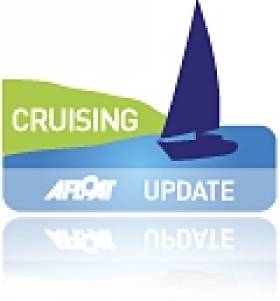Displaying items by tag: FAME
UK Marinas Calm Fears Over Biofuel
Three of Britain's largest marina operators have moved to quash fears that biofuels will enter the diesel supply, Yachting & Boat World reports.
MDL Marinas, Premier Marinas and Yacht Havens Group have all confirmed they are taking steps to ensure the fuel that reaches their customers is free of fatty acid methyl ester (FAME), a biofuel that is harmful to marine engines.
Premier Marinas have said it will be setting low-sulphur diesel containing up to 2% biofuel until the summer, but is adding Soltron enzyme fuel treatment to all batches and does not anticipate any 'diesel bug' problems.
The news comes after the recent advice from the Cruising Association warning against diesel containing biofuels, following the change in EU regulations for low-sulphur dieself for leisure vessels.
Yachting & Boat World has more on the story HERE.
Marine Diesel 'Must Be FAME-Free'
The Cruising Association has urged boaters to ensure their supplies of diesel are free of bio-fuel that could have harmful effects on marine engines.
Regulations for the new grade of low-sulphur diesel for leisure vessels and yachts were introduced last week. But the Federation of Petroleum Suppliers has warned that a percentage of this fuel may contain fatty acid methyl ester (FAME).
The bio-fuel is used safely in a variety of industries but can have "a seriously detrimental effect on some marine engines" and is known to worsen "the problems of ‘bugs’ in tanks, causing blocked filters [and breaking down] to acids leading to engine equipment damage".
It's understood that Irish marinas are arranging with fuel suppliers to provide them with FAME-free diesel, but some diesel containing up to 2% of the bio-fuel may not be phased out until summer.
The Cruising Association has advised boatowners to demand details from their suppliers regarding the age and sulphur content of their fuel, and whether it contains FAME.
Paal Janson of Dun Laoghaire Marina told Afloat.ie: "We are happy to say that we will continue to supply gas oil [diesel] with no FAME content."
He added: "We have been told by our supplier (Maxol) that their 10ppm gas oil also contains no FAME and the only product they supply with FAME is Derv (road diesel).
"They also inform us that the legislation has still not been signed off by the relevant Government minister. So until advised otherwise, it is business as usual for gas oil supply at Dun Laoghaire Marina."































































